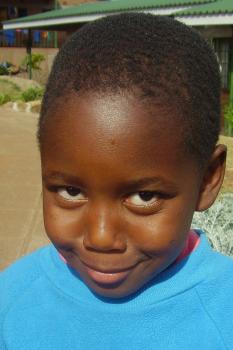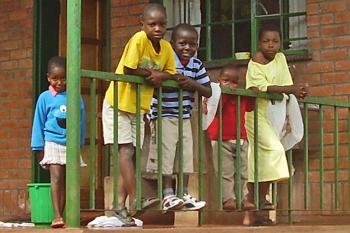Child labour continues to be a huge problem in Blantyre

Blantyre is Malawi’s second-largest city and has a population of approximately 730,000. It is an important centre of finance and commerce, located in the south of the country. However, in both the surrounding rural areas and in the city itself, life continues to be very difficult for the majority of the population.
In rural areas, children are very frequently employed in agriculture. On tea and tobacco plantations in particular, people usually work as tenant farmers, meaning they have to meet production targets. This puts enormous pressure on the family, so the children have to contribute – up to 80 per cent of working children are estimated to be between the ages of ten and 14. These children miss out on crucial years of their education.
Food shortages or the death of a parent cause many children to migrate to Blantyre on their own to try and make a living in the streets. Young girls from impoverished rural areas are frequently lured to come and work in the city under false pretences. Many of them end up being forced into commercial sex work. They lack support and may feel they have no one to turn to for help; in many cases, they have no home to return to.
SOS Social Centres – supporting all members of the community
SOS Children’s Villages began its work in Blantyre in 2007. In recent years, we have continuously expanded our family strengthening programme in the region so as to reach as many struggling families as possible. It is our aim to alleviate hardship and maintain family stability so that children will be safe and protected and grow up in a loving home.
What we do in Blantyre

Strengthen families: The SOS Social Centre in Blantyre supports around 2,000 children and their caregivers, ensuring that children have access to essential health and nutritional services, as well as education.
We assist parents by providing guidance on income-generating skills and parenting practices, as well as counselling and psychological support where needed. In cooperation with local organisations, we work towards strengthening the support systems for vulnerable families within the community. Above all, our support goes out to families affected by HIV/AIDS.
Care in SOS families: For children from the region who are no longer able to live with their parents, SOS families can provide a loving home for up to 150 children. In each family, the children live with their brothers and sisters, affectionately cared for by their SOS mother.
Education: The children attend the SOS Kindergarten together with children from the neighbourhood, which ensures that they are integrated into the local community from a young age. The children then go on to complete their primary education at the SOS school, which is attended by around 370 pupils. At the school, the children also have the option of taking classes in needlecraft, carpentry and home economics.
.